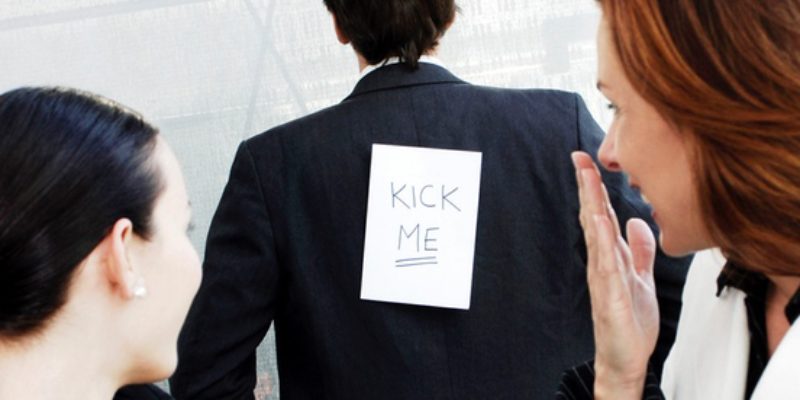
Is Managing Kicking You in the Head?
Managing can be one of the most rewarding positions in a bank and in any organization. Building successful teams, coaching employees to achieve more than they thought possible, and creating a great place for your employees to have a career are just a few of the benefits of managing. However, if you manage poorly, it can be one of the most stressful and draining experiences you could ever go through. It can literally feel like a kick in the head. Here are three management kicks to pay attention to that will help you live on the upside of managing.
Kicking the Can
Are you pushing the little things down the road to deal with at a later date? Far too many managers avoid dealing with the minor things. They have the flawed mentality, it’s not that big of a deal and it’s just easier not to say anything or “deal with it later”. The problem is, these little things quite often grow into significant issues. They create irritation, resentment, and bad attitudes with yourself and your best employees. Maybe it’s the employee who consistently shows up to meetings or even work just one or two minutes late. It’s only one minute, right? No… if there are 20 people in the meeting, that’s 1 minute per person or 20 minutes of time wasted. Do that every week for a year and you’ve wasted over 17 hours. Dealing with the employee who has this one issue is easy and critical, but if it’s not dealt with, know that your best employees are watching. Resentment will build, other so-called minor issues will creep in, and before you know it, you will have lost control and created a culture of anything goes.
Kicking the can also cover managers who are afraid to hold employees accountable for lack of performance. Kicking the can down the road will give comfort to the non-performers and status quo protectors and will cause your best people to question your leadership, become disengaged, or worse… They will seek employment elsewhere. Don’t kick the can. Pick it up, open it, and quickly deal with whatever is in it.
Kicking the Bucket
This usually happens to the manager who had great intentions leading into her position but the change she wanted to implement was fought at every turn. She couldn’t seem to move the team forward.
Unfortunately, kicking the bucket means she is officially done. She has either checked out and is going to operate in that reality moving forward or she is going to find greener grass somewhere else. This often happens to the manager who is overwhelmed with the current situation. Maybe it’s her employees revolting and going to her manager with their complaints. Whatever the case, our recommendation is to kick someone else’s bucket. We like the term, coined by John Taffer, “landmark firing”, getting rid of the worst performing employee as a signal to everyone else that change is here.
If you find yourself in this position, your next step is actually pretty clear. You either move on to something else and hope the decision making abilities and habits you currently have don’t follow you to the new job (they probably will) or you take a stand. This means you move through the mess that you created, and implement a new culture. It’s not the easiest path but it’s the most rewarding for yourself and your bank.
Kicking the Dog
This takes us back to the previous point where we talked about a landmark firing. To effectively lead and manage you must not allow the dog to run things. The dog is often the unauthorized leader of the subculture. He is running things behind your back. He loves to gossip and he’ll pretend to be your best ally and advocate to your face while at the same time, tearing you down to other employees and running his own agenda. This dog only cares about protecting his perceived power and undercutting your ability to move the bank forward.
Here’s the good news. If you really pay attention, you can spot this person fairly easily. Once you know who he is, you’ll be in a position to kick him out. But keep in mind, if you’ve allowed this person to operate within your team for an extended period of time, you can rest assured that he has built allies and will have influence. When you kick him, he’ll do one of two things. He’ll apologize and claim to have changed his ways (he probably won’t) or he’ll bite. Regardless, if you keep kicking, with the facts and the truth on your side, he’ll soon tuck his tail and run. Some may run with him but consider that a good thing. Your best and most loyal employees will step up and will be empowered to help you move things forward.
Side Note: Spotting the Dog – Before kicking the dog, you need to find him. He often uses the term “I’m concerned about…” when coming to you to talk about a successful employee. When discussing accountability or goals, he’ll say “I do that, but I just don’t track it”. He won’t implement the most basic things you ask all of your employees to do such as maintain their calendar, meet simple productivity goals, or follow the most basic standards of your culture.
A Kick From Behind
If you’re struggling in your management efforts, feeling like you’ve had one too many kicks to the head, then give yourself a kick from behind, deal with those who are kicking you, and get back to enjoying managing and moving your team to its greatest days.








